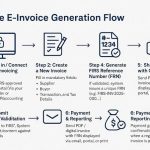Obtaining a Tax Identification Number (TIN) in Nigeria is a free and straightforward process, and in many cases, it is automatically generated. The procedure, however, differs slightly depending on whether the applicant is an individual or a business entity. The Federal Inland Revenue Service (FIRS) advises Nigerians to avoid shortcuts, since the process is officially provided at no cost.
For individuals, the most direct option is to register online through the Joint Tax Board (JTB) website. On the registration portal, applicants are required to select the “Register for TIN (Individual)” option, input personal details such as National Identification Number or Bank Verification Number, and submit the form. Once completed, a TIN is generated and sent to the applicant. Those who prefer an in-person approach may visit the nearest FIRS or State Internal Revenue Service office with essential documents including date of birth, BVN, registered phone number, and, where applicable, a previous tax identification number. Another alternative is to make use of the services of an accredited tax professional or agent who can process the application on behalf of the individual.
For businesses, the process begins with registering the company with the Corporate Affairs Commission (CAC). Once this is done, business owners may visit the TIN registration portal of the FIRS or the State tax revenue service, or proceed physically to the nearest FIRS office with CAC documents. The registration requires submitting company details, which the FIRS will verify before issuing a unique TIN for the business. Key documents needed include the Certificate of Incorporation issued by the CAC, the company’s Memorandum and Articles of Association, proof of business address such as a utility bill, and particulars of company directors.
With the issuance of a TIN, individuals and businesses gain access to tax-related services and compliance frameworks that are vital for both personal financial management and corporate operations in Nigeria.










